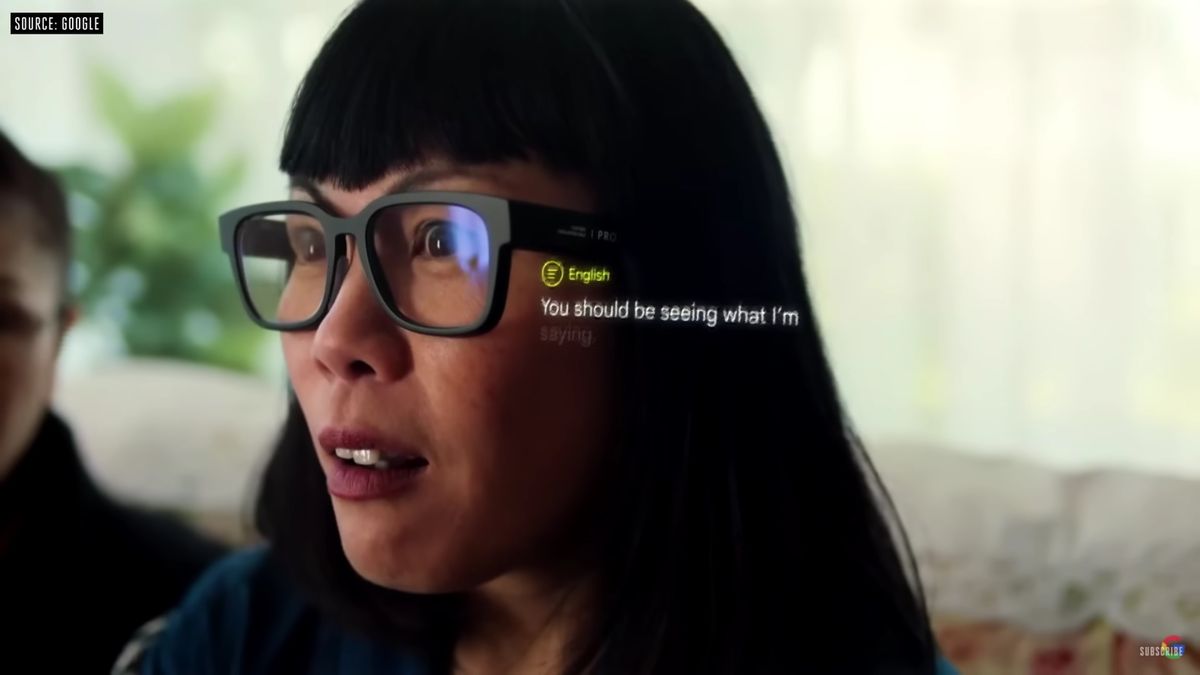Google to field test its AR glasses — why you'll be obsessed with it (if it hits the market)
Frequent travelers will have 'heart eyes' for these spectacles

Google announced that it's poised to launch the field-testing phase of its AR glasses, which was teased at the I/O 2022 keynote. The search engine giant said that lab testing has too many limitations, so the company is seeking to expand its experimentation to the real world.
For example, Google can't recreate weather conditions and busy intersections indoors. As such, Google said that it will launch "small-scale testing in public settings with AR prototypes worn by a few dozen Googlers and select trusted testers."
Google's AR glasses may captivate the masses
For better or worse, if Google's AR glasses hits the market, the masses will be obsessed. On the plus side, the search engine giant will attract frequent travelers to its lair. After all, as Google mentioned at its I/O conference in mid-May, its AR glasses can translate other languages on the spot.

For example, if you decide to visit Hong Kong, but can't understand the local language very well, put on your Google AR glasses. While a Cantonese-speaking person is having a conversation with you, the spectacles will auto translate Cantonese into English — right before your very eyes.
Google said this feature is like "subtitles for the world." How could you not be obsessed?!
The search engine giant also hinted that the AR glasses could benefit the hearing impaired. As someone speaks to them, the smart spectacles will regurgitate what's being said as scrolling words in their eyesight.
With Google planning to test the smart glasses' AI prowess on traffic-heavy streets and certain atmospheric conditions, I suspect the AR glasses feature Google Maps integration, offering interactive instructions on how to navigate unfamiliar locations. Google's AR glasses may also identify real-world items for the wearer's knowledge, tapping into Google Lens and Google Search.
Stay in the know with Laptop Mag
Get our in-depth reviews, helpful tips, great deals, and the biggest news stories delivered to your inbox.
Unfortunately for Google, there will likely be a subset of people, particularly security advocates, who will be obsessed with whether its AR glasses pose a threat to others' privacy — and it's a valid concern. As CNET pointed out, Google suffered this issue when it tested Google Glass nearly a decade ago because it had the ability to take 5MP photos and shoot 720p video.

Although the prototype hitting field testing has cameras, too, Google says that it doesn't "support photography nor videography, though image data will be used to enable use cases like navigation, translation and visual search." After the experience is completed, Google says it will delete the images, save for information gathered for analysis and debugging. "After 30 days, it is deleted," the search engine giant promised.
Google's AR glasses will certainly spark emotions on both sides, from frequent travelers who'd benefit from Google Translate-packed spectacles to privacy advocates who are skeptical about the search engine giant's intentions. If these smart glasses hit the market, I can't for the critical reception. I'll be there with my popcorn!
Kimberly Gedeon, holding a Master's degree in International Journalism, launched her career as a journalist for MadameNoire's business beat in 2013. She loved translating stuffy stories about the economy, personal finance and investing into digestible, easy-to-understand, entertaining stories for young women of color. During her time on the business beat, she discovered her passion for tech as she dove into articles about tech entrepreneurship, the Consumer Electronics Show (CES) and the latest tablets. After eight years of freelancing, dabbling in a myriad of beats, she's finally found a home at Laptop Mag that accepts her as the crypto-addicted, virtual reality-loving, investing-focused, tech-fascinated nerd she is. Woot!
